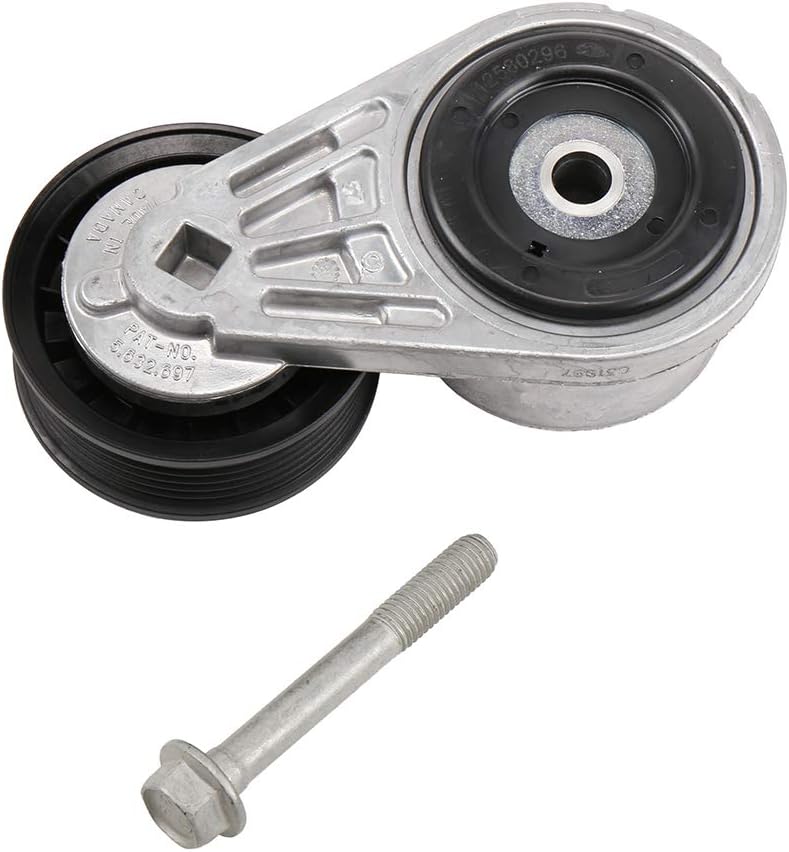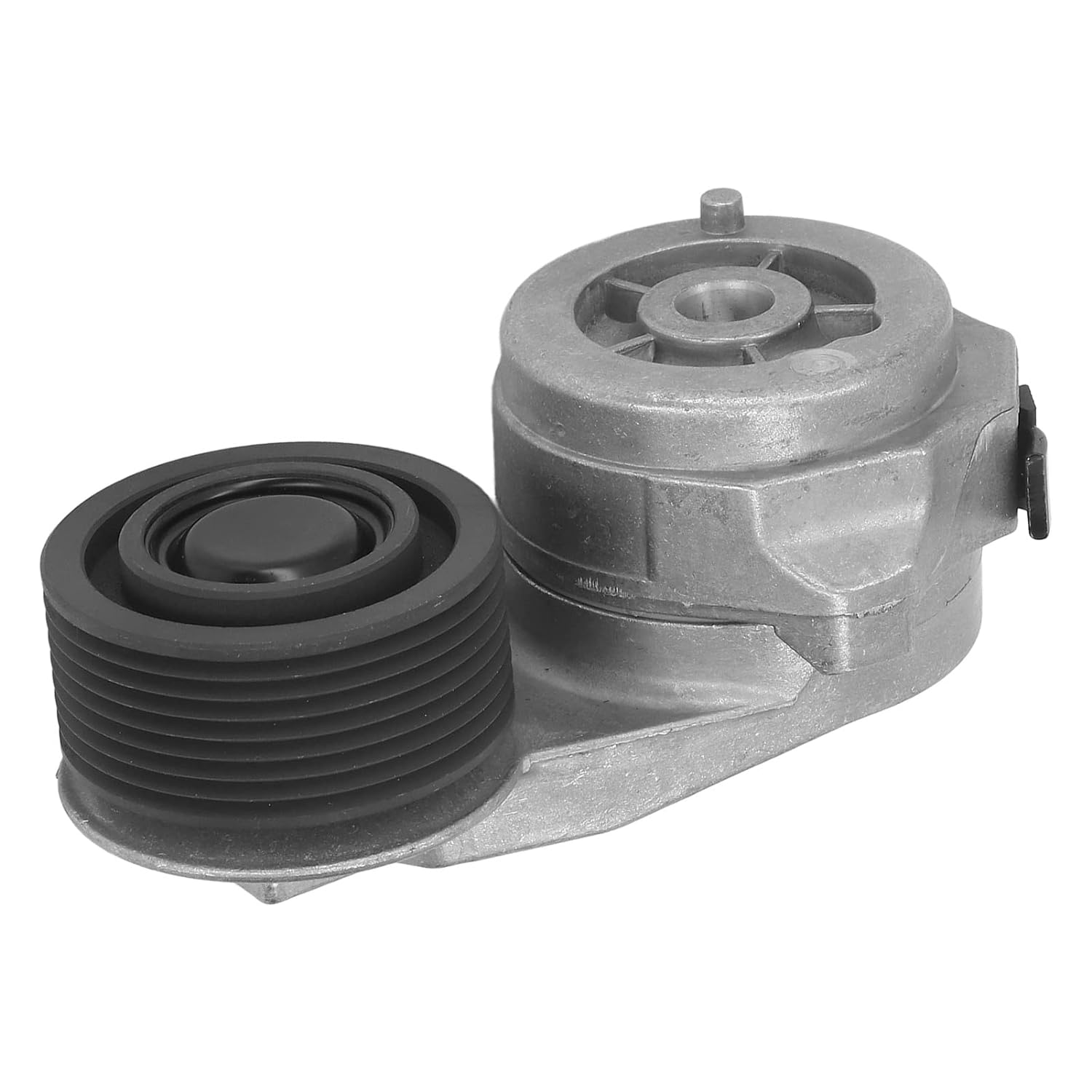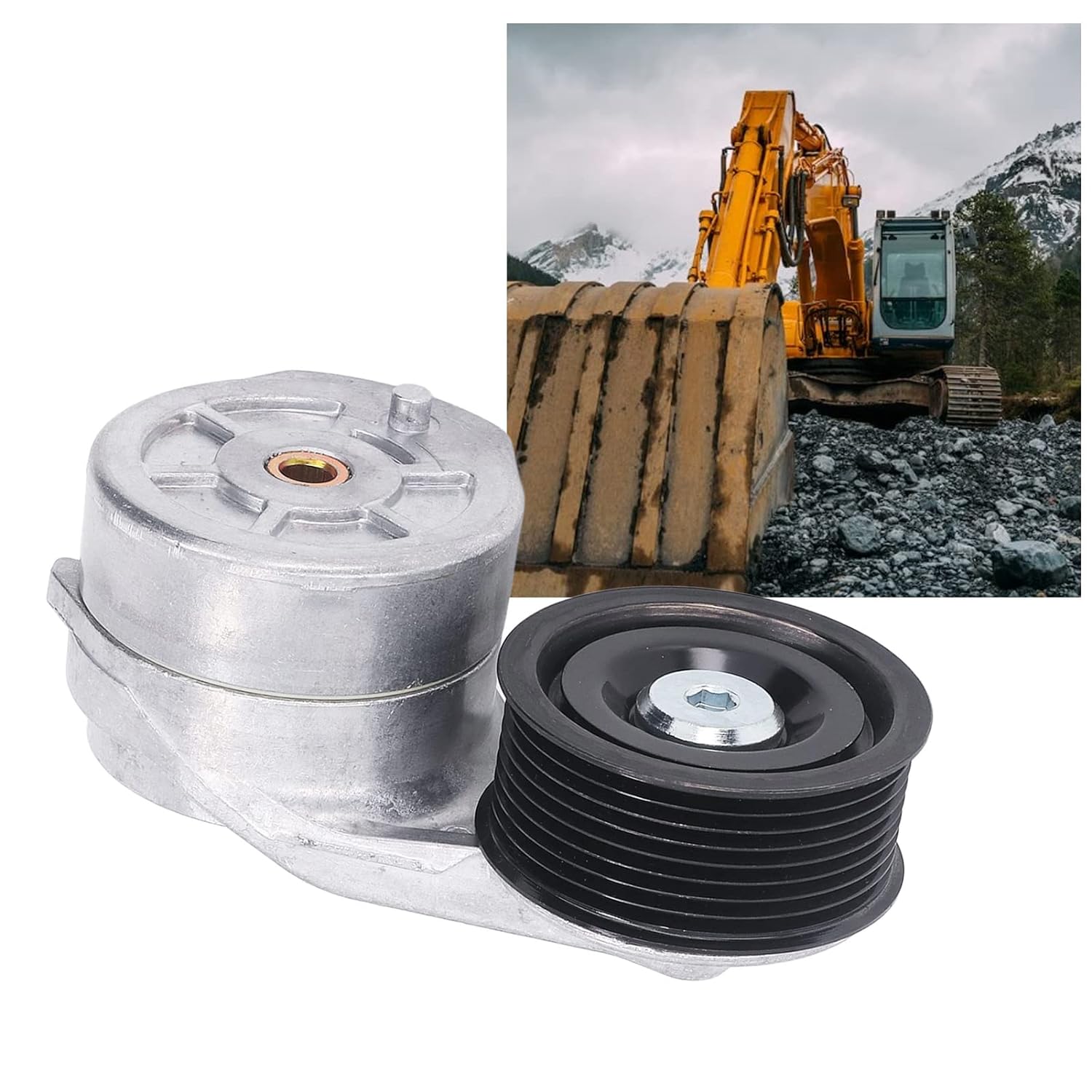Product Description
Product Description
|
Item Name |
Belt Tensioner |
Materials |
Cast iron/steel/Alumium |
|
Color |
customized |
Application |
Construction Machinery,Mining Machinery |
|
original |
Germany |
Net weight |
2.059kg |
|
Model Number |
5718026 04505818 |
Engine Model |
TCD 2012 L06 4V |
Specifications
1.Supply to America ,Europe,Australia and Asia
2.Professional Perfomance Engine spare parts supplier
3.ISO9001 quality system certificated.
Detailed Photos
Main Products
Packaging & Shipping
Company Profile
ZheJiang Ceda Dinglue Machinery Equipment Co. Ltd is a specialized company engaged in the sales and maintenance of German CZPT engines and CZPT spare parts. We are the agent and authorized maintenance service station for CZPT engines and spare parts in Germany, providing customers with relevant technical services and consulting. Since its establishment, the company has been equipped with a large cloud warehouse with a complete range of complete machines and spare parts, achieving multi warehouse shipment and reducing customer delivery time, which is very convenient; A professional CZPT maintenance technical team, with several technical professionals specializing in CZPT engine maintenance and over 20 years of maintenance service experience.
We undertake major, medium, and minor repairs of CZPT engines both domestically and internationally, providing on-site engine maintenance and accessory supply to domestic and foreign CZPT users, providing one-stop service! For many years, the company has received recognition and high praise from users such as highway bureaus, transportation bureaus, municipal companies, road and bridge companies, China Railway bureaus, Air China, and shipping companies in various regions of China. At the same time, in cooperation with domestic and foreign trading companies and customers, the company's maintenance technology and supply of whole machine spare parts have also been highly recognized by foreign customers, establishing long-term and good cooperative relationships, and achieving mutual benefit and CZPT results, The goal of collaborative development.
Professional operation: CZPT Water Cooling Series BFM2012, 1013/C/EC/CP/ECP, BFM1015, CZPT Electric Spray Water Cooling Series TCD2012, 2013, 2015/2 V/4V/6V/8V, TCD2.2/2.9/3.6/4.1/6.1/7.8/12.0/16.0 CZPT Air Cooling Series B/F/L/M2011, B/F/L/912/W, 913, 914, 413, 513/C, original complete machine, accessories, engine oil, antifreeze, etc. Provide major, medium and minor repair services for various diesel engines of CZPT brand.
Our Advantages
1. Deutz genuine goods
2. Sample order is available
3. We will reply you for your inquiry in 24 hours.
4. after sending, we will track the products for you once every 2 days, until you get the products. When you got the goods, test them, and give me a feedback.If you have any questions about the problem, contact with us, we will offer the solve way for you.
FAQ
Q1. What is your terms of packing?
A: Generally,we pack our goods in neutral Carton with pallet or non-fumigation plywoodcase.
Q2. What is your terms of payment?
A: T/T 30% as deposit, and 70% before delivery. We'll show you photos of products and packages before you pay the balance.
Q3. What is your terms of delivery?
A: EXW,FOB,CFR,CIF,DDU
Q4. How about your delivery time?
A: Generally, it will take 3 to 7 days after receiving your advance payment. The specific delivery time depends on the items and the quantity of your order.
Q5. How do you make our business long-term and good relationship?
A: Yes, we have 100% test before delivery.
Q6. Do you test all your products before delivery?
A: 1.We keep good quality and competitive price to ensure our customers benefit;
2.We respect every customer as our friend and we sincerely do business and make friends with them,no matter where they come from.
Q7.If I only had the engine NO., Can you find the matching parts quickly for me?
A: Yes, we are equipped with the latest version of CZPT Serpic 2571, you only need to provide the engine nameplate or serial number, we can quickly and accurately provide information on engine assembly and parts.
/* March 10, 2571 17:59:20 */!function(){function s(e,r){var a,o={};try{e&&e.split(",").forEach(function(e,t){e&&(a=e.match(/(.*?):(.*)$/))&&1
| Certification: | ISO9001 |
|---|---|
| Standard Component: | Standard Component |
| Technics: | Casting |
| Samples: |
US$ 20/Piece
1 Piece(Min.Order) | Order Sample |
|---|
.shipping-cost-tm .tm-status-off{background: none;padding:0;color: #1470cc}
|
Shipping Cost:
Estimated freight per unit. |
about shipping cost and estimated delivery time. |
|---|
| Payment Method: |
|
|---|---|
|
Initial Payment Full Payment |
| Currency: | US$ |
|---|
| Return&refunds: | You can apply for a refund up to 30 days after receipt of the products. |
|---|

Can you explain the benefits of using belt tensioners in preventing slippage and optimizing power transmission in machinery?
Using belt tensioners in machinery offers several benefits in preventing slippage and optimizing power transmission. Belt tensioners play a critical role in maintaining proper tension in the belt, ensuring efficient power transfer, and preventing slippage that can lead to decreased performance and premature wear. Here's a detailed explanation of the benefits:
- Slippage Prevention:
- Efficient Power Transmission:
- Load Handling:
- Reduced Wear and Maintenance:
- System Reliability:
- Noise and Vibration Reduction:
Belt tensioners are primarily designed to prevent slippage between the belt and the pulleys. Slippage occurs when the belt loses traction with the pulleys, resulting in a loss of power transmission efficiency. Belt tensioners apply sufficient force to keep the belt tightly engaged with the pulleys, minimizing the risk of slippage. By maintaining the appropriate tension, tensioners ensure a reliable grip between the belt and the pulleys, preventing power loss, and maintaining optimal performance.
Proper tension provided by belt tensioners is crucial for efficient power transmission in machinery. When the belt is properly tensioned, it remains securely engaged with the pulleys, allowing for efficient transfer of power. The tensioner ensures that the belt maintains the necessary grip and traction to transmit power effectively, minimizing energy losses associated with slippage. By optimizing power transmission, belt tensioners contribute to improved overall system efficiency and performance.
Belt tensioners help in handling varying loads in machinery. As loads fluctuate, the tension in the belt needs to be adjusted to accommodate the changes. Belt tensioners with adjustable features allow for fine-tuning of the tension, ensuring that the belt remains properly tensioned under different load conditions. This flexibility helps optimize power transmission and prevents slippage, even when the machinery is subjected to varying loads, resulting in reliable and consistent performance.
Slippage between the belt and the pulleys can cause accelerated wear on both components. Belt tensioners mitigate slippage, reducing the frictional forces that lead to excessive wear. By maintaining proper tension, tensioners distribute the load evenly across the belt, minimizing localized wear. This results in reduced belt wear, extending the lifespan of both the belt and the pulleys. Additionally, by preventing slippage, belt tensioners help reduce the need for frequent belt replacements and adjustments, resulting in reduced maintenance requirements and costs.
Using belt tensioners improves the overall reliability of machinery. By preventing slippage and maintaining optimal power transmission, tensioners help ensure the consistent performance of belt-driven systems. This reduces the risk of unexpected power losses, interruptions in operation, or damage to other system components. Belt tensioners contribute to the overall reliability and uptime of the machinery, enhancing productivity and reducing the potential for costly downtime.
Slippage between the belt and the pulleys can generate noise and vibrations in machinery. Belt tensioners help minimize these issues by maintaining proper tension and preventing slippage. By ensuring a secure grip between the belt and the pulleys, tensioners reduce the likelihood of belt resonance, belt flutter, or excessive vibrations. This results in quieter operation and improved comfort for operators or users of the machinery.
In summary, using belt tensioners in machinery offers several benefits in preventing slippage and optimizing power transmission. By maintaining proper tension, tensioners prevent slippage, ensure efficient power transfer, handle varying loads, reduce wear and maintenance needs, enhance system reliability, and minimize noise and vibrations. Incorporating belt tensioners into machinery design helps maximize performance, extend component lifespan, and ensure reliable operation in various industrial applications.

What is the impact of proper belt tensioning on the lifespan and performance of belts?
Proper belt tensioning has a significant impact on the lifespan and performance of belts. Maintaining the correct tension in belts is crucial for optimal power transmission, minimizing slippage, reducing wear, and ensuring reliable operation. Here's a detailed explanation of the impact of proper belt tensioning:
- Prevents Slippage:
- Reduces Wear and Friction:
- Ensures Optimal Power Transmission:
- Reduces Maintenance Requirements:
- Enhances Belt Lifespan:
- Improves System Reliability:
Proper belt tensioning prevents slippage between the belt and the pulleys or sheaves it is running on. When belts slip, power transmission efficiency decreases, and the belt can wear rapidly. By applying the correct tension, the belt grips the pulleys or sheaves firmly, ensuring efficient power transfer and minimizing slippage, which can lead to improved performance and energy efficiency.
When belts are improperly tensioned, excessive wear and friction can occur. Insufficient tension can cause the belt to slip and slide on the pulleys, generating heat and increasing friction between the belt and the pulley surfaces. This friction leads to premature wear of the belt and the pulleys, reducing their lifespan. On the other hand, excessive tension can put excessive stress on the belt, leading to accelerated wear and potential damage. Proper belt tensioning helps to minimize wear and friction, extending the lifespan of belts and associated components.
Correct tensioning of belts ensures optimal power transmission from the driving pulley to the driven pulley. When belts are properly tensioned, they can efficiently transfer the required power without energy losses due to slippage or excessive tension. This results in improved overall system performance, as the transmitted power is effectively utilized for driving various components or performing specific tasks.
Proper belt tensioning can help reduce maintenance requirements and associated costs. When belts are correctly tensioned, they experience less wear, require fewer adjustments, and have a lower chance of failure or premature replacement. By maintaining the appropriate tension, the need for frequent belt replacements and unplanned downtime due to belt-related issues can be significantly minimized, contributing to improved productivity and cost savings.
The lifespan of belts is directly influenced by proper tensioning. When belts are under the correct tension, they experience less stress, wear, and fatigue. This can prolong the lifespan of the belt, reducing the frequency of replacements and associated costs. Additionally, proper tensioning helps to distribute the load evenly across the belt, preventing localized wear and extending the overall durability of the belt.
Proper belt tensioning contributes to the overall reliability of belt-driven systems. By maintaining the correct tension, the risk of unexpected belt failures, slippage-related issues, and associated equipment downtime is significantly reduced. This ensures that the system operates reliably, minimizing interruptions in production or operation and enhancing overall system efficiency and performance.
In summary, proper belt tensioning plays a vital role in maximizing the lifespan and performance of belts. It prevents slippage, reduces wear and friction, ensures optimal power transmission, reduces maintenance requirements, enhances belt lifespan, and improves system reliability. By following manufacturer recommendations and using appropriate tensioning techniques, operators can optimize belt performance, minimize downtime, and achieve efficient and reliable operation of belt-driven systems.

How do belt tensioners differ from other components in maintaining belt tension?
Belt tensioners play a distinct role in maintaining belt tension compared to other components in belt drive systems. Here's a detailed explanation of how belt tensioners differ from other components:
1. Tension Adjustment:
Belt tensioners are specifically designed to provide an adjustable means of maintaining the proper tension in the belt. They are equipped with mechanisms such as springs, adjustable arms, or brackets that allow for easy tension adjustment. Other components in belt drive systems, such as pulleys or idlers, do not have this specific functionality and rely on external means, such as manual adjustment or fixed positioning, to maintain tension.
2. Active Tension Control:
Belt tensioners actively control and apply force to the belt to maintain tension. They are designed to compensate for belt elongation, thermal expansion, and other factors that can affect tension over time. By applying the appropriate tension, belt tensioners help to prevent belt slippage and maintain efficient power transmission. In contrast, other components, such as fixed pulleys or idlers, do not actively control tension and rely on the initial tension set during installation.
3. Dynamic Tension Compensation:
Belt tensioners are capable of dynamically adjusting the tension in response to changes in operating conditions. For example, in automotive applications, belt tensioners can compensate for variations in engine speed, temperature fluctuations, and belt wear. They can adapt to these changes and maintain the optimal tension level. Other components, such as fixed pulleys or idlers, do not possess this dynamic tension adjustment capability.
4. Vibration and Noise Damping:
Belt tensioners often incorporate features to dampen vibrations and reduce noise in the belt drive system. They act as shock absorbers, absorbing and dissipating vibrations, which helps to minimize belt flutter and reduce noise levels. Other components, such as fixed pulleys or idlers, do not typically have built-in vibration and noise damping properties.
5. Positioning on Slack Side:
Belt tensioners are typically positioned on the slack side of the belt, between the driving pulley and the driven pulley. This positioning allows them to apply tension to the belt where it is needed most, helping to maintain proper engagement and prevent slippage. In contrast, other components, such as fixed pulleys or idlers, are positioned on the tight side of the belt and primarily serve to guide and support the belt.
6. Component Integration:
Belt tensioners are standalone components that are specifically designed for tensioning belts. They are often integrated into the belt drive system as a separate unit, allowing for easy installation, adjustment, and replacement. Other components, such as pulleys or idlers, serve different functions in the system and may be integrated into other mechanisms or structures.
In summary, belt tensioners differ from other components in belt drive systems in their ability to provide adjustable tension control, dynamic tension compensation, vibration and noise damping capabilities, specific positioning on the slack side of the belt, and as standalone components designed solely for tensioning belts. These features make belt tensioners essential for maintaining optimal tension and ensuring the efficient and reliable operation of belt drive systems.


editor by CX 2024-02-15